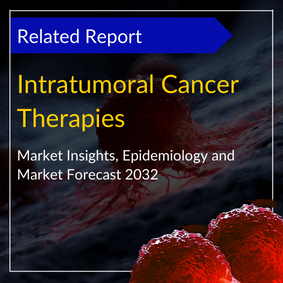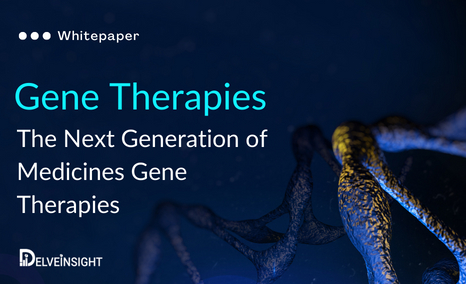Table of Contents
The growth and development in the Digital health technologies, such as mobile health (mHealth) apps, electronic health records (EHRs), electronic medical records (EMRs), wearable devices, telehealth, and telemedicine, as well as personalized medicine, have immensely transformed the healthcare industry and its market landscape over the past few years. Overcoming the obstacles in patient-clinician communication, managing the symptom outside of the local treatment area, and delivering better outcomes are the key objectives of digital health. The computing platforms, connectivity, software, and sensors are the backbone of digital health technologies. These technologies, over a short period of time, have been able to revolutionize the way healthcare is delivered. In managing acute and chronic diseases, digital health technologies play a significant role in attaining optimum health outcomes and well-being. Similarly, in the oncology segment, the emerging digital health tool and technology have the potential to fulfill the present gaps in the delivery of care and elevate the current healthcare environment.
What is Digital health? And How is it Providing a New Dimension to Oncology Care?
Digital health, or digital healthcare, is a broad and multidisciplinary concept with a wide scope and application. It is an intersection between technology and healthcare and aims to enhance the efficiency of healthcare delivery and to make treatment more personalized and precise. It includes digital care programs, mobile health (mHealth), health information technology (IT), wearable devices, telehealth and telemedicine, and personalized medicine. The goal of digital health is to bridge the current obstacles in patient-clinician communication barriers. Moreover, it minimizes the number of unnecessary clinical visits, particularly to the emergency room and hospitals.
Cancer is one of the major health burdens globally and leads to a larger number of morbidity and mortality worldwide. The number of cases is rising at an immense pace, and the over the years, it has emerged as a prominent cause of death worldwide. In 2020, 10 million deaths were reportedly related to cancer, which is nearly equal to nearly one in six deaths. Cancers can be cured if detected early and treated effectively. However, there are several challenges to its prevention and control. Some of the most common cancer types, such as breast cancer, cervical cancer, oral cancer, and colorectal cancer, have high cure probabilities if detected early and provided optimum treatment. There is, however, a significant divergence in treatment availability and outcome across different countries and socioeconomic groups, which is leading to a higher burden of cancer on patients and their families.
To provide better diagnosis and treatment globally, several MedTech and HealthTech companies are actively working on various digital health solutions for cancer management. Digital health in the oncology segment includes patient-facing technologies that improve patient experience, safety, and patient-clinician interactions. With each passing, the growth in the segment is creating new avenues in cancer management. These technologies are expected to fulfill the current gaps in the oncology segment with a better understanding of cancer, improving cancer diagnostics, prevention, monitoring, and treatment. In some cases, it can provide tailoring prescriptions to specific needs and facilitate general patient care. Moreover, these technologies can enhance the quality of care and research infrastructure, improve the ability to diagnose pathology and predict adverse events, and improve clinical workflows, documentation, decision support, clinical trial monitoring, and many more.
Major Digital Health Solutions in Oncology Segment
Digital Health Solutions provide immense patient benefits, such as remote care and assessment, easy patient data sharing, and assisting healthcare professionals in making better and informed decisions. In the field of oncology, digital health has several applications, which include:
Care Navigation & Patient Support
mHealth interventions today play a key role in supporting patient behavior change, promoting treatment compliance, providing patient education, and clinical decision support. Several patient navigation programs are available in the market. In the oncology segment, these programs help to support patient-reported outcomes in the oncology treatment journey. These care navigation & patient support application helps the person to report their symptoms via online tracking programs. Similarly, digital health technologies such as telemedicine can connect the patient with a specialized physician to inquire about preventative measures. Remote data collections provide many benefits to the user and save valuable time. To the oncologist, data collection platforms and the increasing presence of telehealth and connected devices help oncologists to better navigate the cancer treatment care journey and holistically manage the symptoms better.
Clinical Trial Optimization
It is observed that only a small proportion of patients participate in clinical trials. In the case of a disease like cancer, it becomes critical to enroll a high number of patients for better treatment development. Digital health technologies collect patient-reported outcomes and allow symptom monitoring, and improve patient management. Similarly, some of the software is designed in a way that they can automatically scan the trial registries using patient-specific data and provide relevant information. Globally, several key companies are leveraging the potential of digital health tools and technologies in the oncology field, which is expected to improve clinical development processes. It will make the trial matching, screening, recruitment, consent, execution, monitoring, and follow-up much easier.
Symptoms Detection & Diagnostics
Currently, several digital health apps and tools are available in the market that provide more timely and comprehensive cancer detection & diagnostics. These mobile, web, and phone-based symptom monitoring applications can be operated remotely. The app has several interactive features, such as self-reporting and alert functions. Incorporating symptom detection technologies is expected to provide immense growth to the oncology diagnostics segment in the coming years. To stimulate growth, several companies in the segment are working on various emerging digital tools and software which can provide more specific and complete diagnoses of various cancer types. ASyMS©, Automated voice response (AVR) System, Bioconnec, Cankado, COMPASS (Capturing and Analyzing Sensor and Self Report, Data for Clinician and Researchers), eCO (eCediranib /Olaparib), eDiary, ESRA-C (Electronic Self-report AssessmentCancer), The Health Buddy® System, KAIKU®, MeQoL, MOOVCARE™, NCI PRO-CTCAE (STAR), are some of the major types of application for the detection of the symptoms for several diseases.
Research & Data Management:
Hospitals and healthcare providers collect vast amounts of data. In the case of cancer, owing to the rise in the number of patients, it sometimes becomes difficult for the service providers to capture and store it in a structured format. The burdensome process of sorting a massive amount of data hinders usability and can affect treatment efficacy. To make better diagnostics and treatment decisions, digital health technologies can greatly help make a better diagnosis by understanding the reported symptom and reviewing the stages of cancer. It can assist in treatment determination while interpreting the health data at a much higher rate. Globally, several key companies are working on developing real-world evidence to address safety and efficacy concerns in the oncology segment. These solutions aim to improve the data collection method, interpretation, and sharing across different verticals.
Clinical Decision Support
Emerging technologies such as data sharing (with secure cloud architecture and encrypted transmission), artificial intelligence, and machine learning are expected to enhance collaboration and decision-making better in the healthcare industry. In the oncology segment, implementing these technologies can streamline the clinical workflow and information management, thereby improving the clinical decision support system. With the growth and innovation in digital health technologies, in the coming years, treatment decision-making by clinicians and care teams is expected to get reasonably better with more and more adoption of digital health solutions. In the long run, it will help in optimum health outcomes for oncology patients.
Apart from the above-mentioned technologies and benefits, portable and wearable consumer electronics are also expected to propel cancer treatment and health outcomes. Wearable health technologies make communication, interconnectivity, and information sharing much easier. The prevention, risk assessment, detection, diagnosis, and survivorship are expected to improve with the greater adoption of these wearable technologies.
Digital Health in Oncology Market – Future Perspective
Digital health solutions in the oncology segment are anticipated to provide effective outcomes, more tailored interventions, and expand patient access. Digital health technologies at present are in the infancy stage, and in the coming years, they will play a crucial role in improving clinical trials, reducing adverse events, enabling home care, and improving quality of life through avenues such as AI, wearables, and remote monitoring, among others. Moreover, the growing interest of the biopharma, MedTech, and HealthTech giants to dominate and grab the market share will also propel the growth of digital health solutions in the oncology domain. Overall, all the ongoing clinical and commercial development in the digital health segment will continue to have a positive mark on the treatment journey.











-Agonist.png)


